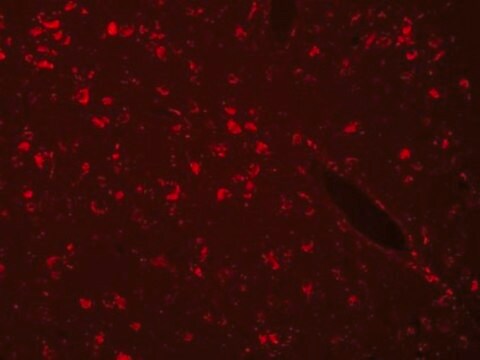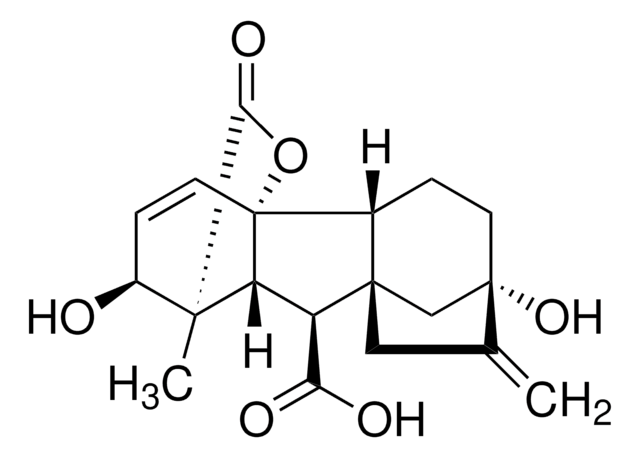5100
CD164 human
recombinant, expressed in E. coli, 0.5 mg protein/mL
About This Item
Productos recomendados
biological source
human
recombinant
expressed in E. coli
description
0.05 mg of recombinant human CD164 in 20 mM Tris-HCl buffer, containing NaCl, KCl, EDTA, L-arginine, DTT and glycerol.
sterility
Filtered sterilized solution
assay
≥90% (SDS-PAGE)
form
liquid
packaging
pkg of 50 μg
concentration
0.5 mg protein/mL
accession no.
NP_006007
UniProt accession no.
storage temp.
−20°C
Gene Information
human ... CD164(8763)
Application
Use this procedure as a guideline to determine optimal coating conditions for the culture system of choice.
1. Thaw CD164 and dilute to desired concentration using serum-free medium or PBS. The final solution should be sufficiently dilute so the volume added covers the surface evenly (1-10 μg/well, 6 well plate).
Note: Use 1 ml PBS per well in a 6-well plate.
2. Add 1 - 10 μg protein to each well and incubate at 2 to 10 °C overnight.
3. After incubation, aspirate remaining material.
4. Plates are ready for use. They may also be stored at 2-8 °C damp or air dried if sterility is maintained
Sequence
Preparation Note
Storage Class
10 - Combustible liquids
wgk_germany
WGK 2
flash_point_f
Not applicable
flash_point_c
Not applicable
Certificados de análisis (COA)
Busque Certificados de análisis (COA) introduciendo el número de lote del producto. Los números de lote se encuentran en la etiqueta del producto después de las palabras «Lot» o «Batch»
¿Ya tiene este producto?
Encuentre la documentación para los productos que ha comprado recientemente en la Biblioteca de documentos.
Nuestro equipo de científicos tiene experiencia en todas las áreas de investigación: Ciencias de la vida, Ciencia de los materiales, Síntesis química, Cromatografía, Analítica y muchas otras.
Póngase en contacto con el Servicio técnico







